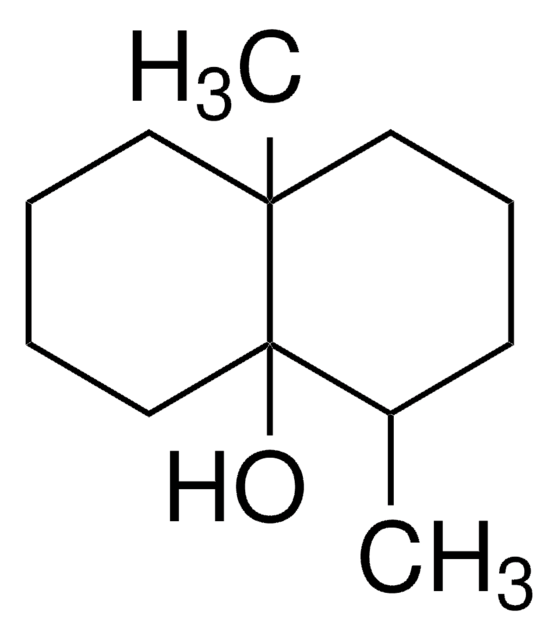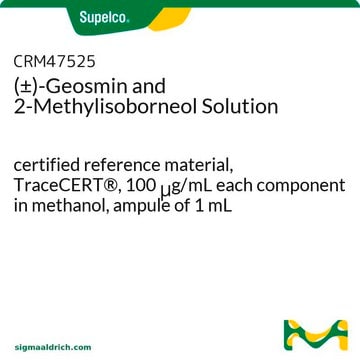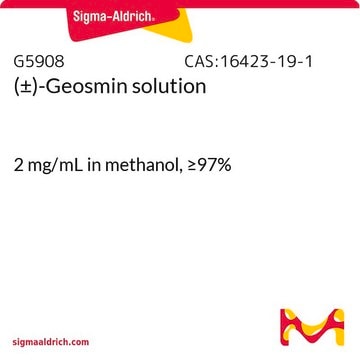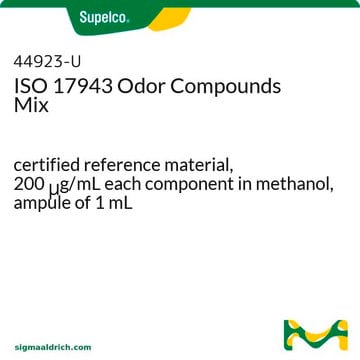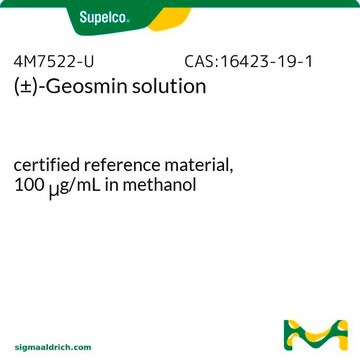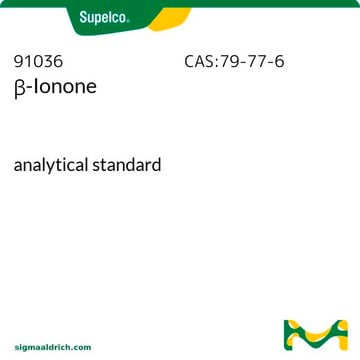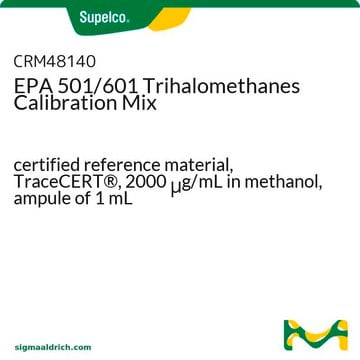CRM47523
2-Methylisoborneol solution
certified reference material, TraceCERT®, 100 μg/mL in methanol, ampule of 1 mL
Sinónimos:
Drinking Water Odor Standards, Odor Standards, (1R-exo)-1,2,7,7-Tetramethylbicyclo[2.2.1]heptan-2-ol
About This Item
Productos recomendados
grade
certified reference material
TraceCERT®
Quality Level
product line
TraceCERT®
CofA
current certificate can be downloaded
packaging
ampule of 1 mL
concentration
100 μg/mL in methanol
technique(s)
HPLC: suitable
gas chromatography (GC): suitable
application(s)
cleaning products
cosmetics
environmental
food and beverages
personal care
format
single component solution
storage temp.
2-30°C
SMILES string
CC1(C)[C@@H]2CC[C@@]1(C)[C@](C)(O)C2
InChI
1S/C11H20O/c1-9(2)8-5-6-10(9,3)11(4,12)7-8/h8,12H,5-7H2,1-4H3/t8-,10-,11-/m1/s1
InChI key
LFYXNXGVLGKVCJ-FBIMIBRVSA-N
¿Está buscando productos similares? Visita Guía de comparación de productos
Application
Other Notes
Legal Information
signalword
Danger
Hazard Classifications
Acute Tox. 3 Dermal - Acute Tox. 3 Inhalation - Acute Tox. 3 Oral - Flam. Liq. 2 - STOT SE 1
target_organs
Eyes,Central nervous system
Storage Class
3 - Flammable liquids
wgk_germany
WGK 2
flash_point_f
49.5 °F - closed cup
flash_point_c
9.7 °C - closed cup
Elija entre una de las versiones más recientes:
¿Ya tiene este producto?
Encuentre la documentación para los productos que ha comprado recientemente en la Biblioteca de documentos.
Los clientes también vieron
Nuestro equipo de científicos tiene experiencia en todas las áreas de investigación: Ciencias de la vida, Ciencia de los materiales, Síntesis química, Cromatografía, Analítica y muchas otras.
Póngase en contacto con el Servicio técnico
